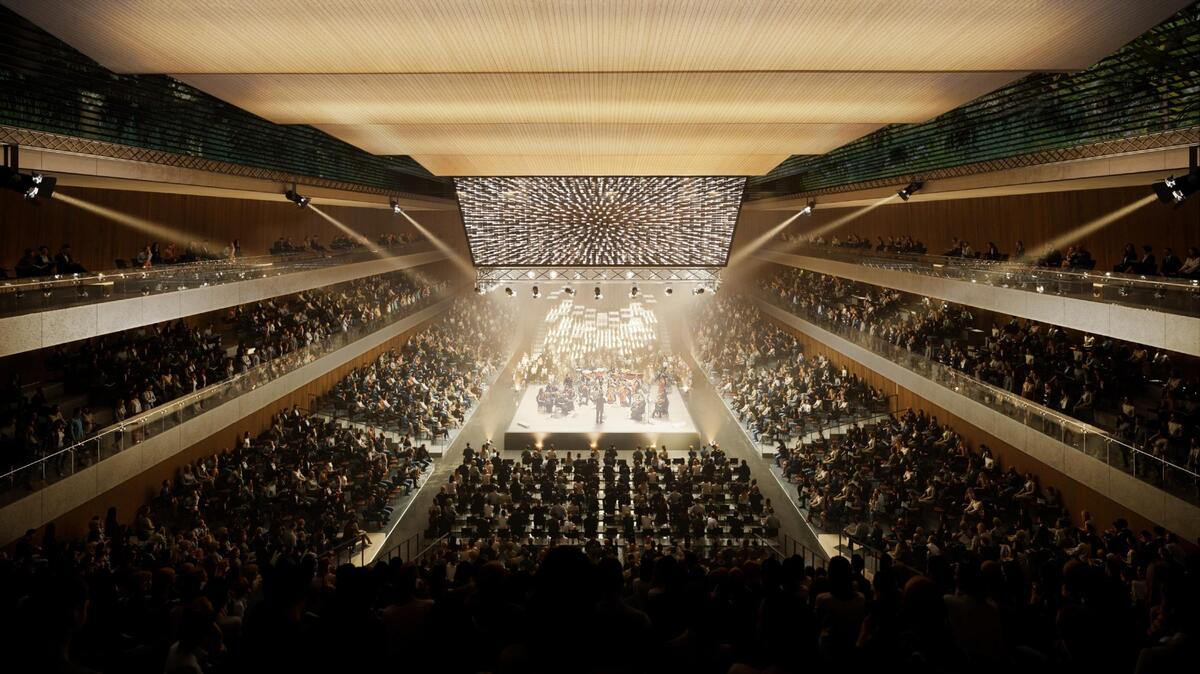"We welcome the government's decision to take the preparation of the cultural and congress infrastructure into its own hands and to prepare a fair and transparent public tender," says Pavel Pelikán, Executive Director of JTRE. The lack of transparency, expertise and public scrutiny has been highlighted by the JTRE since the beginning of the process, and these reservations have been confirmed by the Feasibility Study's evaluation of the feasibility study. Instead of comparing all relevant alternatives, the OZ NKKC study assessed only one of several possible variants on the basis of predetermined parameters based on an unpublished analysis and only one specific project among several bids submitted by three bidders.
"At the beginning of this process, a feasibility study should be prepared, which will compare different variants of the center in terms of capacity and standard, including renovation of existing buildings, but also the possibility of building separate facilities with a central cultural or congress function. Only a comparison of different alternatives for the solution of cultural and congress infrastructure will generate the right task so that the future National Cultural and Congress Center is effective for the state, which is the most important prerequisite to support the development of these promising areas that were significantly affected by the pandemic, "adds Pavel Pelikán.
Based on a quality and clear assignment resulting from the feasibility study, the state will then be able to select the most suitable location, method of implementation and partner for the establishment of the NCC. It is necessary to clarify whether Bratislava wants to take the path of one multifunctional center for congresses and culture, or whether it would not be better to build separate facilities. Congresses, conferences and meetings have completely different space and background requirements than cultural events. In the first case, the key is a flexible main hall with the possibility of dividing the event into separate sections, sufficient space for exhibitions, presentations, informal meetings and catering, facilities for supply and quick adaptation of the center for other events. In the latter case, acoustics or lighting, for example, are important. Different types of events are also characterized by a different seating configuration. "Simply put, you can easily organize cultural events in the congress center, in the cultural center the possibilities for congresses are limited," characterizes Pavel Pelikán.
It was the wrong starting points and unclear selection criteria, unsubstantiated parameters of the center, unspecified requirements for its equipment and operation, unspecified roles of civic association members in selecting suppliers or operator of the center, without which it is not possible to choose a suitable equipment standard and economic model of operation. shortcoming of the current process. The study also did not reflect current trends in the MICE industry (short for Meetings - meetings and events, Incentives - incentives, Conferences - congresses and conferences, Exhibitions - exhibitions and fairs) and the changes that a pandemic has brought and may bring.
"JTRE rejects allegations that, as an allegedly unsuccessful candidate, it resorts to baseless allegations. On the contrary, from the very beginning we have been talking professionally and in fact about the demanding requirements of the organizers of international events, we have initiated several public discussions with the participation of all three candidates and experts, and we have transferred a lot of know-how to the NKKC working group. At the same time, we have long pointed out doubts about the procedure of the NKKC trademark in the preparation of the feasibility study. Unfortunately, the civic association avoided the public debate, it did not respond to our questions, which is why the feasibility study did not move the topic of the development of the MICE sector in Slovakia anywhere, "explains Pavel Pelikán.
He emphasizes that, in parallel with the debate on the new center, a discussion on the systematic support of the MICE industry and the building of the brand of Slovakia and Bratislava as a congress destination must begin. As examples of successful cities, including neighboring Vienna, show, establishing a city on the congress world map is the result of systematic long-term work. If we declare our interest in opening the NKKC by 2030, when Slovakia will be the presiding country of the Council of the EU, it is necessary to start the promotion of Bratislava now.
JTRE is ready to contribute to the public discussion with its previous experience with the preparation of the cultural and congress center as well as its own study of the MICE branch. It still envisages the possibility of building a multifunctional congress and cultural center in Eurovea City or Novi Lid.







